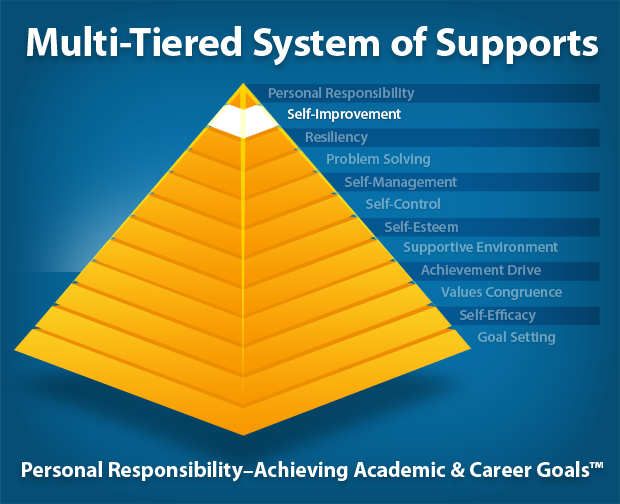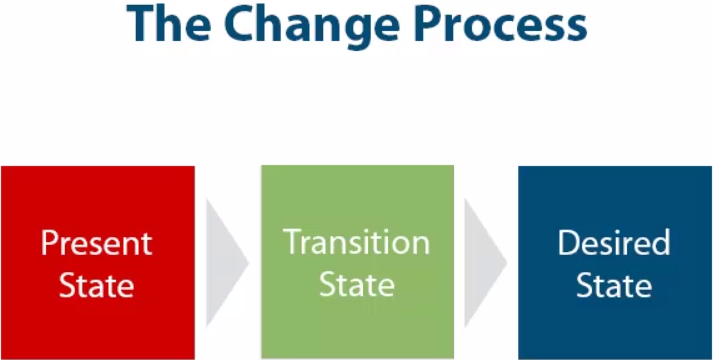
The focus of this blog is on self-improvement, the eleventh scale of twelve in our Personal Responsibility Map®, which is a core assessment in our Personal Responsibility—Achieving Academic and Career Goals™ program.
Self-Improvement and MTSS
Multi-Tiered System of Supports, or MTSS, is a term used to describe an evidence-based model of schooling that uses data-based problem solving to integrate academic and behavioral instructions and intervention (Florida’s MTSS Project). This definition brings together the worlds of academic instruction and behavioral intervention. In the MTSS model, helping students open themselves up to change and improvement is basic to the educational process and key to success in academics as well as life.
Awareness of Self
Self-improvement begins with an awareness of one’s self. Awareness is knowledge of something. Self-awareness is the knowledge of one’s self. In 1939 the scientist Eric Fromm first noticed the connection between self-concept and how one feels about others. Hatred against one’s self is tied to hatred against others.
In 1961, noted psychologist Carl Rogers wrote that self-awareness and self-acceptance, as well as the ability to know and accept others, are needed for personal growth. He found that one of the most basic human needs is the need for self-regard (caring for oneself).
Self-Improvement Demands Personal Change
Once we become aware of our strengths and weaknesses, we can move up the ladder of personal development to self-improvement.
Let’s face it, all of us have limitations. It’s part of being human. What is most important is how we deal with our limitations. Some limitations we can do nothing about, while others can be changed and improved upon. Having a solid awareness of one’s self is critical in this change process.
Desire for Change
Daryl Conner, in his book Managing at the Speed of Change, states that people who adapt more slowly than the pace of change happening around them do so because they have a very low ability to deal with uncertainty.
Kurt Lewin, in his work Group Decision and Social Change, broke down the change process into three states—the present state, the transition (change) state, and the desired state.
Lewin states that major change happens only when the pain of the present state is more than the cost of the transition state.
Want to learn more about how you can help your students to become more open to change and self-improvement? Sign up for your free trial below.



